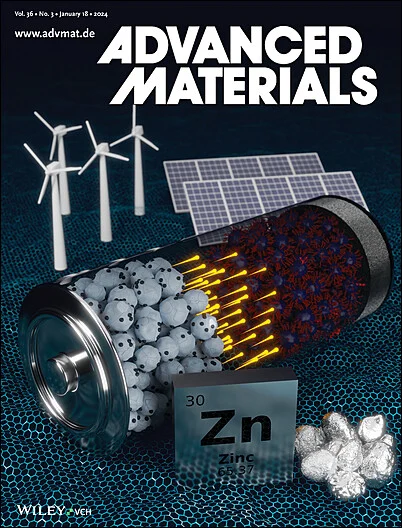Energy–Mass Transfer in Photothermal Desalination: Multi‐Scale Innovations and Distributed Water Solutions toward Sustainability
IF 26.8
1区 材料科学
Q1 CHEMISTRY, MULTIDISCIPLINARY
引用次数: 0
Abstract
In response to the dual challenges posed by global water scarcity and carbon neutrality targets, conventional desalination technologies struggle to satisfy the requirements of high energy consumption and inherent limitations associated with centralized water supply systems. Within this context, interfacial solar steam evaporation (ISSE) technology has emerged as a promising solution to mitigate the uneven spatial and temporal distribution of water resources, owing to its advantages of highly efficient photothermal conversion, zero carbon emissions, and modular design. Although ISSE has been developed for tens of years, there are still many challenges to be faced, from fundamental research to practical applications. It is noticed that the energy conversion and mass transport are the core issues in multi‐scale levels of ISSE, no matter of the material design or the system assembly, and the optimization of them is beneficial for the whole process of ISSE. Herein, the research progress is tried to understand and summarize from the material chosen, structural architecture, and system integration with the view of energy and mass transfer. Furthermore, the successful integration of thermoelectric conversion, simultaneous water–hydrogen cogeneration, and metal salt recovery has concurrently enhanced the efficiency of energy utilization. Furthermore, a collaborative operation framework integrating discrete water networks and ISSE technology has been predicted. Through AI empowerment and modularized design, it eventually forms a smart water cycle system with the trinity of “water collection‐purification‐cogeneration.” At the end of this review, the thoughts on the development of ISSE are also provided.光热脱盐中的能量-质量传递:面向可持续发展的多尺度创新和分布式水解决方案
为了应对全球水资源短缺和碳中和目标带来的双重挑战,传统的海水淡化技术难以满足高能耗的要求和集中式供水系统的固有局限性。在这种背景下,界面太阳能蒸汽蒸发(ISSE)技术由于其高效光热转换、零碳排放和模块化设计的优势,已经成为缓解水资源时空分布不均匀的一种有前途的解决方案。尽管ISSE已经发展了几十年,但从基础研究到实际应用,仍然面临着许多挑战。指出无论是材料设计还是系统装配,能量转换和质量传递都是ISSE多尺度层面的核心问题,对其进行优化有利于ISSE的整个过程。本文试图从材料选择、结构结构、系统集成等方面,从能量传质的角度对研究进展进行理解和总结。此外,热电转换、同时水氢热电联产和金属盐回收的成功整合,同时提高了能源利用效率。此外,还预测了离散水网与ISSE技术相结合的协同运行框架。通过人工智能赋能和模块化设计,最终形成“集水-净化-热电联产”三位一体的智能水循环系统。最后,对ISSE的发展提出了一些思考。
本文章由计算机程序翻译,如有差异,请以英文原文为准。
求助全文
约1分钟内获得全文
求助全文
来源期刊

Advanced Materials
工程技术-材料科学:综合
CiteScore
43.00
自引率
4.10%
发文量
2182
审稿时长
2 months
期刊介绍:
Advanced Materials, one of the world's most prestigious journals and the foundation of the Advanced portfolio, is the home of choice for best-in-class materials science for more than 30 years. Following this fast-growing and interdisciplinary field, we are considering and publishing the most important discoveries on any and all materials from materials scientists, chemists, physicists, engineers as well as health and life scientists and bringing you the latest results and trends in modern materials-related research every week.
 求助内容:
求助内容: 应助结果提醒方式:
应助结果提醒方式:


